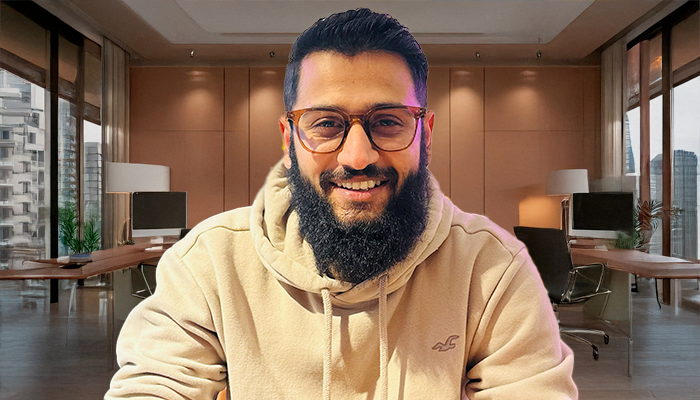Dependant Visa Extension While the Skilled Worker Applies for ILR: What You Need to Know
The process of applying for Indefinite Leave to Remain (ILR) as a Skilled Worker visa holder often raises questions about the status of dependants. A common concern is whether dependants can extend their current visas or must wait until the main applicant’s ILR application is resolved. This article addresses these concerns and provides clarity on the available options.
Can a Dependant Extend Their Visa if the Main Applicant Applies for ILR?
Yes, dependants of Skilled Worker visa holders can apply to extend their dependant visas even if the main applicant has applied for or been granted ILR. This is an important step for dependants who have not yet met the requirements for ILR themselves.
Key Points to Consider:
Maintaining Lawful Residence:
A dependant visa is tied to the status of the main applicant’s Skilled Worker visa. However, even if the main applicant transitions to ILR, dependants can continue under the Skilled Worker Dependant route by applying for an extension.
Eligibility for Extension:
-
-
- Dependants must apply for an extension before their current visa expires.
-
-
-
- The application must be made under the same conditions as their initial dependant visa.
-
-
-
- The dependant visa extension can be granted even if the main applicant no longer holds a Skilled Worker visa but has transitioned to ILR.
-
Why This Is Allowed:
-
-
- The UK immigration system provides flexibility to ensure dependants are not left without legal status during this transitional phase.
-
-
-
- Dependants remain eligible under the Skilled Worker visa rules as long as they meet the criteria for extension.
-
Minimum Grant Period:
When a dependant applies for an extension, the visa is typically granted for at least three years. This means that even if less time is required to meet ILR eligibility, the Home Office does not issue dependant extensions for shorter durations. This results in higher visa fees and Immigration Health Surcharge (IHS) costs for applicants.
When Can Dependants Apply for ILR?
Dependants can only apply for ILR if they meet the settlement criteria, including:
- 5-Year Continuous Residence: The dependant must have spent at least five years in the UK on a valid dependant visa linked to the main applicant’s Skilled Worker visa.
- Cohabitation and Supporting Documents: Evidence of living with the main applicant during the qualifying period is required.
- Absence Limits: The dependant must not have exceeded 180 days of absence in any 12-month period during the qualifying period.
If the dependant does not meet these criteria when the main applicant applies for ILR, they cannot apply for settlement simultaneously.
To discuss your Immigration case with one of our immigration experts, please contact X Law Lawyers.
How to Apply for a Dependant Visa Extension
The process for applying to extend a Skilled Worker Dependant visa is straightforward:
- Online Application: Dependants must complete the relevant application form on the Home Office website.
- Required Documents:
-
- Current biometric residence permit (BRP).
- Proof of relationship with the main applicant (e.g., marriage or civil partnership certificate, birth certificate for children).
- Evidence of cohabitation (e.g., utility bills, council tax statements).
-
- Fees and Processing Times:
-
- Application fees and the Immigration Health Surcharge (IHS) must be paid at the time of submission.
- Dependants should budget for the three-year minimum extension duration.
- Processing times typically range from 8 to 12 weeks, though priority services may be available for faster decisions.
-
What Happens After the Extension?
Once a dependant’s visa is extended, they can continue living, working, or studying in the UK. This extension provides sufficient time for them to meet the ILR eligibility requirements. Once eligible, they can apply for settlement independently, regardless of when the main applicant transitioned to ILR.
Practical Advice for Dependants
-
- Act Early: Apply for an extension before the visa expiry date to avoid any risk of overstaying.
-
- Keep Records: Maintain detailed evidence of your relationship with the main applicant and cohabitation during your stay in the UK.
-
- Plan for Costs: Budget for the minimum three-year extension fees and associated IHS charges, even if less time is needed to meet ILR criteria.
-
- Seek Professional Guidance: If unsure about your eligibility or the process, consider consulting an immigration solicitor or adviser for tailored advice.
To discuss your Immigration case with one of our immigration experts, please contact X Law Lawyers.
Conclusion
Dependants of Skilled Worker visa holders can safely extend their visas even if the main applicant applies for or has already been granted ILR. While the system ensures continuity for dependants, it is essential to plan for the three-year minimum extension period and its associated costs. Understanding the rules and planning accordingly can help avoid unnecessary complications and ensure a seamless transition to settlement when the time comes.
If you need assistance with your dependant visa extension or have concerns about your immigration status, professional advice can provide clarity and help you navigate the process confidently.

